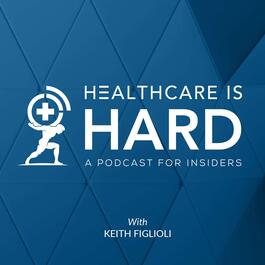
Opportunities in Oncology (Part 2): Balancing Cutting-Edge Research and Community Care
Dr. Harlan Levine began his career practicing internal medicine but soon moved into business leadership roles at national healthcare organizations to help improve the dysfunction with payer-provider relationships that he experienced firsthand as a physician. At United Health Group, Dr. Levine joined as clinical lead of the team that launched Optum, where he subsequently served as chief medical officer for more than six years. He also led the health management practice at Towers Watson and served as executive vice president of comprehensive health solutions at WellPoint, among other roles. In 2013, Dr. Levine joined City of Hope, one of the country’s largest and most advanced cancer research and treatment organizations. City of Hope’s uniquely integrated model spans cancer care, research and development, academics and training, and a broad philanthropy program that powers its work. City of Hope’s growing national system includes its Los Angeles campus, a network of clinical care locations across Southern California, a new cancer center in Orange County, California, and cancer treatment centers and outpatient facilities in the Atlanta, Chicago and Phoenix areas. In addition to currently serving as president of health innovation and policy at City of Hope, Dr. Levine is also chair of the board of AccessHope. A spinout from City of Hope, AccessHope partners with the nation’s most prestigious cancer research centers to help make leading-edge cancer care available to all, regardless of geographical location. Dr. Levine joined Keith Figlioli for the second episode of a Healthcare is Hard series exploring opportunities in oncology. Some of the topics they discussed include:Community practice vs. academic medical centers. Delivering personalized care and giving patients access to cutting-edge treatment is equally important, yet historically difficult to balance. In the first episode of this series, Dr. Stephen Schleicher from Tennessee Oncology shared how one of the nation’s most successful community oncology practices is tackling the challenge. In this episode, Dr. Levine discussed City of Hope’s model of putting academic research at the center and connecting it with community practices. He described how City of Hope is changing the direction of cancer care – not just delivering it – by giving patients faster access to emerging science.Defining value in oncology. Dr. Levine calls himself an outlier when it comes to value-based care in oncology because he thinks the industry missed a critical first step – defining what the term means. In most circumstances, discussions around value are centered around reducing cost. But Dr. Levine points out that a cancer patient defines value very differently. They define it as survival. They think about whether or not they returned to normal functionality in normal life, and what their experience was through the entire treatment process. He says the industry needs to recognize and customize models for these unique aspects of cancer care before the term VBC should be used in oncology.AI in oncology. Dr. Levine shared his outlook for the many ways artificial intelligence will change oncology – from drug discovery to care delivery. He believes AI will completely disrupt the approach to cancer care and that the revolution will happen quickly – not in seven to 10 years, but in three to five. He talked about the ways he sees AI changing how doctors deliver care, and why he’s even more optimistic about its ability to accelerate research. To hear Dr. Levine and Keith discuss these topics and more, listen to this episode of Healthcare is Hard: A Podcast for Insiders.
From "Healthcare is Hard: A Podcast for Insiders"


Comments
Add comment Feedback